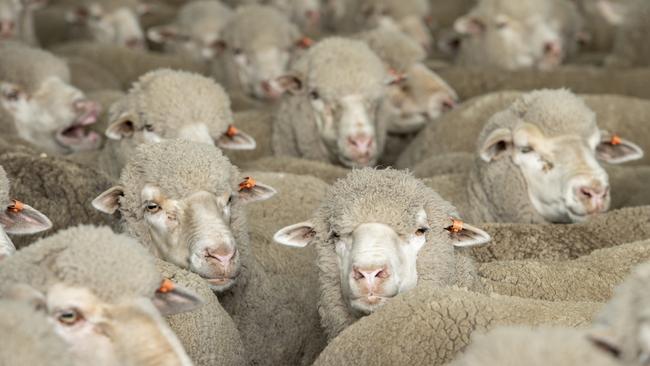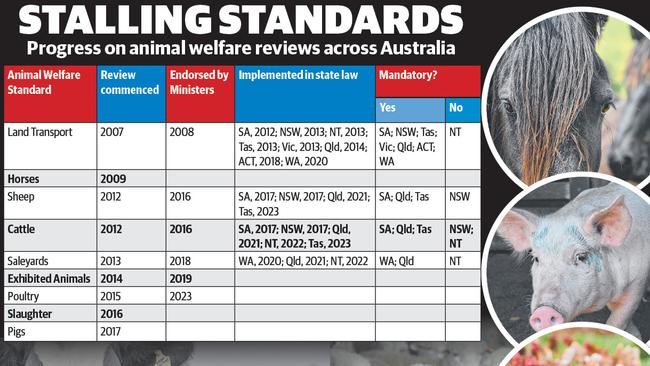Animal welfare: States stall on new standards
Almost 20 years since new animal welfare standards were recommended, fewer than half are in place. See which states are dragging the chain.

Progress on new national animal welfare standards has stalled, with fewer than half implemented almost 20 years after the changes were first recommended.
An analysis of nine livestock categories shows just four new animal welfare standards have been completed – and even then, not all jurisdictions have followed through by introducing them into state or territory law.
While states and territories are responsible for their own animal welfare laws, they are guided by national model codes of practice. A review of those codes in 2005 recommended a new series of Australian animal welfare standards and guidelines be developed – but progress has been slow.
The nation’s agriculture ministers agreed to new cattle and sheep standards in 2016, yet 10 years on only four states have introduced the sheep standards and five have introduced the cattle.
Saleyards standards, completed in 2018, have only been introduced by three governments: Western Australia, Queensland and the Northern Territory.

Meanwhile, progress on other categories has completely stalled.
A review on the horses standard, started in 2009, stopped in 2011 “due to funding issues”, according to the Australian Animal Welfare Standards and Guidelines website.
Development of a new pigs standard – an industry whose animal welfare practices are currently under fire from animal activists – appears to have not progressed since a 2018 literature review.
Victorian Farmers Federation pig group president Tim Kingma the pig standard review was stopped due to a lack of lead government agency.
“The industry has not rested on its laurels,” Mr Kingma said.
“We have continued to undertake research to ensure producers are always improving our on-farm practices and upholding high standards.”
The new poultry standard, started in 2015, was finally agreed to last year and saw all states agreeing to phase-out caged eggs by 2036.
VFF egg group president Brian Ahmed said long time frames were necessary to give producers plenty of time to adapt their businesses.
“Our infrastructure isn’t just a shed, we spend millions on infrastructure that we can’t just change overnight,” he said.
Australian Alliance for Animals policy director Jed Goodfellow said history showed it took 10 years for new standards to go through the review, development and implementation process.
“By the time they’re finally implemented, they’re out of date,” he said.
“It’s a broken system and a big part of why Australia is falling behind the pace internationally.”
Mr Goodfellow said he hoped the federal government’s renewed Australian Animal Welfare Strategy – which itself is not due to be published in full until 2027 – would include “a more streamlined approach to standard setting” that would ensure all jurisdictions “pull their weight”.
Victoria is lagging significantly, having only implemented the land transport standard, which is the only standard all jurisdictions have brought in.
Past Victorian ag minister Mary Anne Thomas said in 2021 that the government would incorporate the standards in its new animal welfare act. The exposure draft of that Bill was released just before Christmas 2023, six years after it was first flagged.
Queensland is well ahead of its fellow states, implementing and making mandatory all endorsed standards so far.




